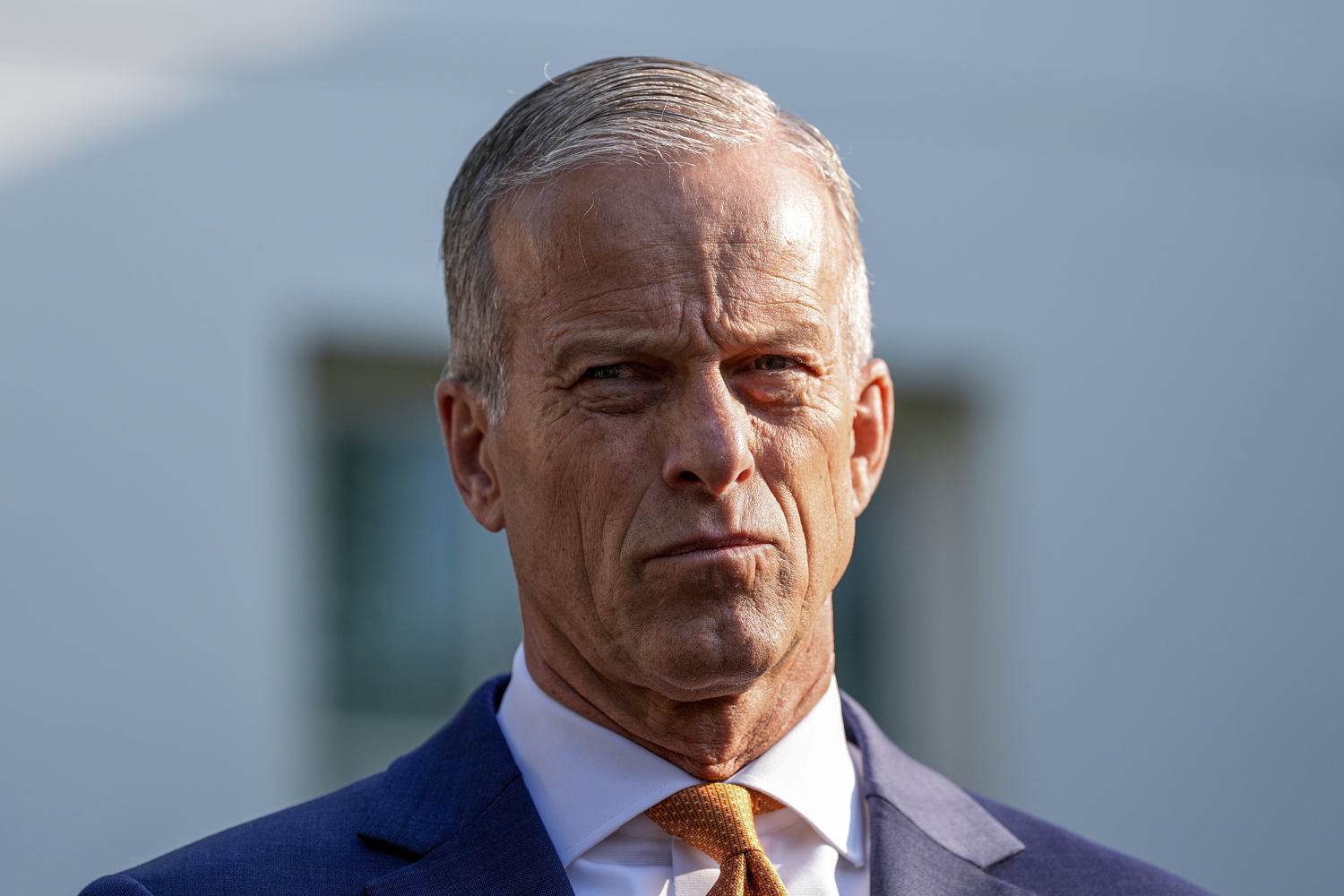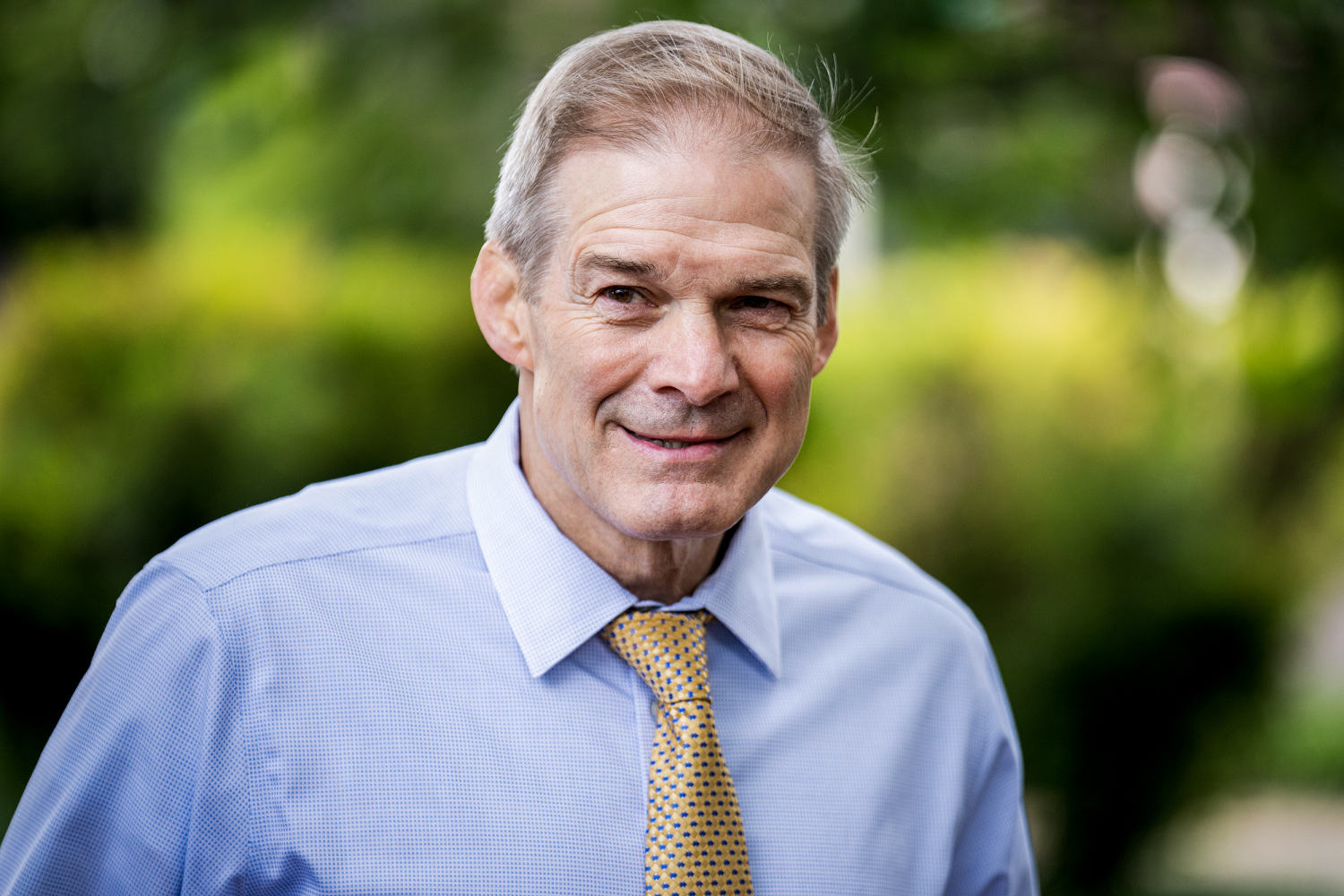The Dictatorship
How RFK Jr.’s ‘medical freedom’ initiatives leave LGBTQ people behind

This article is part of “Finding Pride in a Divided America,” a special series from BLN Daily.
In early June, Health and Human Services Secretary Robert F. Kennedy Jr. announced his decision to purge 17 members from the Advisory Committee on Immunization Practices, a panel of public health and medical experts who advise the Centers for Disease Control and Prevention on vaccines. In the following weeks he replaced them with anti-vaccine activists and leading suppliers of misinformation. We saw the consequences many feared from this action on Thursday when new HHS hire Lyn Redwood, a nurse practitioner and president of an anti-vaccine group founded by Kennedy, presented data to ACIP on flu vaccines based on a widely debunked theory.
Kennedy’s reconfiguring of ACIP comes as part of his larger promise to, in his words, extend so-called “medical freedom” and “health choice” to all Americans.
Coming during Pride Month, the act of imposing his views under the guise of freedom and autonomy hits especially hard.
This touting of freedom, choice and independence has a particularly hypocritical ring this time of year.
This June marks the 56th commemoration of the Stonewall Riots, a week of uprisings in the early summer of 1969 when queer and trans patrons of the Greenwich Village bar revolted in response to police raids. While this year the month has been marked by the usual marches and celebrations, it’s also marked by a period when LGBTQ civil rights and cultural acceptance are facing an accelerated retraction, with an intense focus on rescinding health care access.
Kennedy and his Make America Healthy Again movement claim that his policy moves will give Americans the power to make personal health choices free from government overreach. But this MAHA agenda so far focuses on “informed choices” like whether to get routine vaccines, seeking “radical transparency” by dismantling agencies responsible for the oversight of food safety, and focusing on individual responsibility for one’s health — rather than tackling systemic issues like poverty, racism and sexism that lead to worse health outcomes.
This touting of freedom, choice and independence has a particularly hypocritical ring this time of year. Not only are they a veneer for policies that will leave Americans with fewer safety protections and diminished access to health care, but they propel support for the Trump administration’s ferocious efforts to deprive queer and trans Americans of the very same decision-making power over our own bodies and lives.
The movement has placed groups like “crunchy” teenagersmomfluencersand Gen Z and millennial women who’ve historically leaned toward the Democratic Party in a coalition with MAGA’s most far-right proponents. Using rhetoric about bodily autonomy co-opted from the reproductive justice movement, Kennedy’s movement and its (largely white) influencers have exploited real fears about fertility, food additives and pollution to generate support for another Trump election that paved the way for his administration to advance an anti-LGBTQ and anti-DEI agenda. And has it ever.
Since entering office, President Donald Trump has issued a flurry of executive orders targeting LGBTQ rights and DEI programs that impact the health and acceptance of LGBTQ people, including directing Kennedy in his capacity as HHS secretary to end access to gender-affirming care for trans youth and separately pausing funding for the PEPFAR program, which provides HIV medication and support abroad.
Under Kennedy’s leadership, HHS has placed LGBTQ people at the center of the bull’s-eye by stripping away access to health care and resources. The agency was reported in March to be weighing preliminary plans that would gut the CDC’s Division of HIV Prevention, which promotes testing, tracks HIV infections and conducts research.
In early May, HHS released a report by unnamed authors condemning gender-affirming care that the president of the American Academy of Pediatrics said “misrepresents the current medical consensus and fails to reflect the realities of pediatric care.” “The Many Report” focusing on children’s health, released in May and laden with errors, echoes the earlier document, referring to gender-affirming care for youth as an unresearched “harm.” Meanwhile, the report makes no mention of intersex children, who are often forced to undergo medically unnecessary surgeries for atypical genitalia.
Beyond the federal government, two dozen states have passed bills targeting trans people in 2025 alone, according to the Trans Legislation Trackerand lawmakers in nine states have introduced measures to weaken same-sex marriage, which has conferred the right for same-sex spouses to access each other’s health insurance and make medical decisions for their families. All this as the Supreme Court ruled to uphold a state-level ban on access to gender-affirming care for youth and has taken up a case challenging a ban on conversion therapy.
While Kennedy sets HHS’ sights on destroying access to gender-affirming care and HIV/AIDS support and research, the MAHA movement has taken up its own mantle on forms of gender-affirming care and disease prevention.
These efforts amount to an attack on the physical and mental well-being of LGBTQ Americans and seek to eradicate transgender people from existing altogether — an effort that Kennedy was complicit in long before entering government. On his own podcast and in other interviewsKennedy has falsely claimed that pollutants cause gender dysphoria, comparing trans youth to lab frogs that can be “chemically castrated” by being exposed to hormones in one discussion with the alt-right podcaster Jordan Peterson, which was removed from YouTube in 2023 for what the platform said violated its vaccine misinformation policy. In step with this disinformation, Kennedy has claimed that AIDS is caused by poppers and a “gay lifestyle,” rather than HIV.
While Kennedy sets HHS’ sights on destroying access to gender-affirming care and HIV/AIDS support and research, the MAHA movement has taken up its own mantle on forms of gender-affirming care and disease prevention. Women leaders in the movement decry a “reproductive crisis,” not by calling out diminished access to abortion care or IVF, but by focusing their criticism on hormonal birth control and mammograms. Others peddle supplements like methylene blue, which is used to treat a blood disorder but is otherwise a textile dye that followers claim provides protection from Alzheimer’s and other illnesses (there is no evidence for this, but it does turn their tongues blue).
The basis for these concerns may come from legitimate questions about birth control and a sincere desire to protect oneself against devastating illnesses. Yet there is a deeply sinister irony to MAHA’s fear that grave medical injustices are being committed against them and their families. The movement seldom, if ever, acknowledges America’s history of medical experimentation performed on Black people, forced sterilization of disabled people, and “treatments” like lobotomies and exorcisms given to “cure” LGBTQ people in the past — all part of a craven legacy that the Trump administration seeks to censor by cutting DEI programs and criminalizing the teaching of racism, slavery and inequality. But for the very groups its leaders now target, MAHA’s greatest fears have already come true.
Half a year into the Trump administration, it’s clear that Kennedy and his MAHA movement are fortifying a pipeline from wellness culture to the anti-LGBTQ far right through policy, reports and the gutting of panels vital to supporting Americans’ health, while plying supporters with debunked wellness talk and empty promises of independence.
It’s the same tired homophobia and transphobia rebranded as health freedom, and LGBTQ people — especially trans youth — are being stripped of our choices until we’ll have none at all.
The Dictatorship
In major blow to GOP, over $500 billion of megabill’s budget cuts deemed against the rules

In the past week, Senate parliamentarian Elizabeth MacDonough has ruled that several portions of the GOP megabillthe signature legislation of President Trump’s first year back in office, violated the chamber’s rules for the budget reconciliation process, and cannot be passed on party lines. Thursday morning, MacDonough issued a slew of new rulings — and dealt a major blow to Republican plans to rush the bill to Trump’s desk.
To avoid a Senate filibuster, Republicans are moving the bill through the chamber using the budget reconciliation process, which allows bills to be passed with a simple majority. But the Senate has strict requirements for what can be passed under budget reconciliation, and on Thursday MacDonough disqualified more than a dozen of the bill’s provisions under those rulesincluding several restrictions on Medicaid, student aid and other assistance for certain non-citizen immigrants, as well as a prohibition on Medicaid and Children’s Health Insurance Program funding for gender-affirming care. Each provision, if Republicans left them in, would be subject to a 60-vote threshold — which means Democrats could block them. UPDATE (June 27, 2025, 9:25 a.m. ET): On Friday, MacDonough ruled against several more provisionsincluding increased penalties for disclosure of taxpayer information (which the GOP had pushed after leaks of Trump’s tax returns) and deregulation of gun silencers.
Senate Republicans will try to save what provisions they can by rewriting the bill’s language.
MacDonough’s most significant ruling, though, concerned the bill’s limits on the Medicaid provider tax, which helps states obtain more federal matching funds for the program. That change already faced opposition from several GOP senators, including Josh Hawley and Susan Collinswho particularly fear its impact on rural hospitals. But Republican leaders have pushed to keep it in because it would save approximately $250 billion, a desperately needed offset to the Senate bill’s additional tax cuts. In total, the parliamentarian’s decisions threaten well over $500 billion of the bill’s cutsaccording to a rough analysis from Bobby Kogan, a federal budget expert at the Center for American Progress.
Some Republican lawmakers criticized MacDonough after her rulings. On X, Sen. Tommy Tuberville, R-Ala. called for “the WOKE Senate Parliamentarian” to be fired. Rep. Greg Steube, R-Fla., demanded Vice President JD Vance “overrule the Parliamentarian” — which Vance does not have the power to do.
In fact, while it’s true that the parliamentarian is unelected, the very-much-elected senators could overrule her at any time if they wish. But as Senate Majority Leader John Thune told Punchbowl News in January“That’s totally akin to killing the filibuster. We can’t go there.” There are good arguments for getting rid of the filibuster, and Democrats even tried to change the filibuster rules in 2022 to pass a voting rights bill, only for then-Democratic Sens. Kyrsten Sinema and Joe Manchin to join Republicans against the effort. But there’s little support for that path in the Senate GOP. “That would not be a good option for getting a bill done,” Thune reiterated to Politico Thursday.
Instead, Senate Republicans will try to save what provisions they can by rewriting the bill’s language. “But it’s not really clear how many of [the provisions] they can cure,” NBC News’ Sahil Kapur told MSNBC’s Ana Cabrera. Not that Trump will be interested in those details: Republican Sen. Josh Hawley told the New York Times earlier this month that Trump wasn’t even aware of the bill’s changes to the provider tax.
What Trump will care about, though, is how it affects the bill’s timeline. “The Republican sources I’ve talked to say this is not fatal to the bill,” Kapur reported, but “the bill clearly isn’t ready for prime time as is.” The Senate had hoped to begin voting on the legislation Friday, with the goal of getting the final version to the president by July 4. The necessary rewrites — and especially the lack of clarity about the changes to the provider tax — will at least scramble that timeline, if not delay it.
Republicans in Congress want this legislation off their plates.
Republicans likely could have avoided this slapdash process had they moved the bill along more slowly. “A slow process benefits the majority,” observed Koganas it gives them more time to ensure the bill’s language doesn’t fall afoul of Senate rules or contain other errors. And surely a bill that takes away health care from millions of Americans, mostly to finance tax cuts for the wealthiest, deserves a considered, thoughtful hearing?
But Republicans in Congress want this legislation off their plates: the bill is already unpopular and only gets less popular when you ask voters about specifics. And the president, with his approval ratings deeply underwater and creeping still further down, wants a bill he can sign and show to the cameras. The details — and the consequences — are someone else’s problem.
James Downie is a writer and editor for BLN Daily. He was an editor and columnist for The Washington Post and has also written for The New Republic and Foreign Policy.
The Dictatorship
Major corporations are showing their true colors this Pride — but we’re still here

This article is part of “Finding Pride in a Divided America,” a special series from BLN Daily.
The last time I attended a Pride parade, it was 2019 in Washington, D.C. I had been to a few before — Portland, Mainewhich I had just moved away from, and of course Boston, which is something of a rite of passage for New England queers like me.
Each one felt like a corporate and political spectacle. I met Sen. Elizabeth Warren at the Boston parade in 2017, not long before she unsuccessfully ran for president. My daughter and I marched with a group of colleagues from a former employer of mine, a local Maine bank, that same year, tossing rainbow-themed tchotchkes to the cheering crowds lining Congress Street in Portland’s downtown.
It’s hard to feel proud of yourself when the parade that’s supposed to honor your identity is sponsored by Raytheon.
I didn’t go to Pride in 2020 in part thanks to Covid — but also because I was getting tired of the “corporateness” of it all. It’s hard to feel proud of yourself when the parade that’s supposed to honor your identity is sponsored by Raytheon. That dissonance is partly what led me to stop attending those events.
But looking back now, those years feel like a quaint bygone era in queer rights. With Donald Trump sweeping into office on the back of hundreds of millions of dollars spent on anti-trans ads as he led a crusade against DEI effortscorporate America responded in kind. And among the first items on the chopping block were Pride sponsorships and corporate support for LGBTQ rights.
This year, Pride has been marked by major corporations, some of which had been our community’s first corporate allies, backing out of major sponsorships. Anheuser-Busch, the parent company of Budweiser, ended its 30-year run as lead sponsor of St. Louis’ PrideFest and pulled back on its spending on San Francisco’s Pride events. Comcast, BLN’s parent company, pulled its sponsorship from San Francisco Pride.
Mastercard, PepsiCo and Citibank ended relationships with New York City Pride, while Booz Allen Hamilton, Deloitte and Visa pulled out of sponsoring WorldPride, which was held this year in Washington, D.C.
Where once companies felt free to pursue gay sales dollars, now they see political risk. All of these withdrawals follow extensive right-wing intimidation and harassment campaigns against companies that support LGBTQ people. Budweiser was at the center of perhaps the biggest controversy, when in 2023 a single Instagram partnership with trans influencer Dylan Mulvaney resulted in a massive backlash and boycott that company executives say they’re still dealing with now.
Similarly Target, while not pulling completely out of Pride festivities, significantly pared back its rainbow-themed Pride collection. The company has seen a significant drop in sales following boycotts after corporate leaders announced it was ending its corporate DEI initiatives.
Corporate money in Pride has long been a point of tension within the LGBTQ community. Some organizers argued that corporate sponsors allowed for ever-larger parades, stages and event spaces in which queer and trans people could safely celebrate Pride.
But others within the queer community took a more skeptical approach. We suspected that funding and vocal support were only as good as the cultural acceptance of the moment.
Now that we’re in the throes of an intense backlash against trans lives, and by extension the greater queer movement and LGBTQ rights, the doubters are being proved right.
It turns out that corporations are all in on Pride if it means supporting customers with extra dollars in their walletbut not so much when it comes to supporting our community’s most vulnerable, like trans people (who incidentally are statistically more likely to land among society’s poorest).
I myself have long been a critic of corporate Pride, or “rainbow-washing,” especially when many of these same sponsors also sent gobs of money to the very same conservative politicians seeking to take away the rights we have been marching for year after year. And now that these companies are retreating from their support for the community, I can’t help but get a creeping feeling at the back of my neck. It’s not just less funds to commemorate our community; we are less safe when major corporate players actively stop making space for us.
But maybe there’s something bigger to say about this moment. It was just us at the first Pride march more than 50 years ago. By standing up for our basic rights to exist, we all built a movement together that changed the country, and the culture.
The corporations may be retreating, but we still have a chance to stand together as one community, united in resisting the hatred and vitriol of those who believe none of us should exist.
Pride is still here. We are still marching on our streets for our rights. There may be fewer colorful merch items or shiny toys being tossed into the crowd. There might be fewer events and less space this June, but we’re all still here, together. Maybe it’s time for me to show my face at Pride again.
Katelyn Burns is a freelance journalist based in New England. She was the first openly transgender Capitol Hill reporter in U.S. history.
The Dictatorship
HBO documentary recounts a shocking scandal Rep. Jim Jordan says he knew nothing about

Before Ohio Republican Jim Jordan became a polarizing political figure in Congress as a pugilistic performance artist and slavish follower of President Donald Trump, he was a four-time state wrestling champ and two-time NCAA national wrestling champ who, in 1986, brought his talents to Ohio State University as an assistant wrestling coach. The 18-, 19- and 20-year-olds Jordan coached through grueling practices and brutal matches respected his knowledge and skill, and as they put it all on the mat for Buckeye glory, they trusted Jordan to be there for them. On the sidelines. In their face. Through pins and takedowns. Injuries and infractions.
The 18-, 19- and 20-year-olds Jordan coached respected his knowledge and skill, and they trusted Jordan to be there for them.
But multiple OSU wrestlers say in the new HBO documentary “Surviving Ohio State” that when they were subjected to serial sexual assaults by the team doctor, Dr. Richard Strauss, Jordan wasn’t there for them. According to an independent investigation published in 2018, Strauss, who died by suicide in 2005, “sexually abused at least 177 male student-patients” at OSU over a 20-year period, including at least 48 men on the wrestling team. And several of Jordan’s wrestlers during his eight-year coaching stint at OSU have included themselves in that number.
Multiple wrestlers say Jordan (who coached at OSU from 1986 to 1994) knew Strauss (who voluntarily retired in 1998) was abusing them and did nothing. Dan Ritchie, who wrestled for Jordan from 1988 to 1992, alleges in the documentary that the assistant coach directly addressed his athletes about the allegations against Strauss with this crack: “If he ever did that to me, I’d snap his neck like a stick of dry balsa wood.”
In total, six wrestlers have said that they had conversations with Jordan about Strauss’ increasingly abusive groping, fondling, trauma-inducing exams and that he acknowledged their complaints. But in the same way he avoided being pinned down as a wrestler, he has avoided being pinned down by reports from wrestlers who say he didn’t protect him and that they weren’t able to count on him for help.
This isn’t a new scandal. When it broke in 2018, Jordan immediately disavowed knowing of anything untoward about the notorious team doctor and was adamant that if he had known about any type of abuse, “I would have done something about it.” And, after having suffered no obvious political consequences over the last seven years because of the explosive OSU story, he responded to the HBO documentary in essentially the same way as before: “Chairman Jordan never saw or heard of any abuse, and if he had, he would have dealt with it,” his office said in a statement.
In 2023, as Jordan was vying to become House speaker, a former wrestler known only as John Doe, told NBC News, “My problem with Jimmy is that he has been playing with words instead of supporting us.” That former athlete said, “None of us used the words ‘sexual abuse’ when we talked about what Doc Strauss was doing to us, we just knew it was weird and Jimmy knew about it because we talked about it all the time in the locker room, at practices, everywhere.”
Chairman Jordan never saw or heard of any abuse, and if he had, he would have dealt with it.
A statement from rep. jim jordan’s office
University personnel, along with multiple coaches, were aware of the abuse as early as 1979, according to an independent investigation commissioned by Ohio State. What Strauss was doing, multiple students told those investigators, was an “open secret” on campus that seemingly everyone shrugged off. That report found that 22 coaches, 18 student trainers and “five team physicians and/or Sports Medicine Fellows whose employment at OSU overlapped with Strauss” told investigators “they were aware of rumors or complaints about Strauss” going at least back as far as the early 1980s and extending at least into the mid-1990s. But no individuals were named in that report.
As the documentary “Surviving Ohio State” neared release this month, a spokesperson for the university gave a statement to WOSU public radio that WOSU said “expressed deep regret and apologies for Strauss’ actions” but emphasized how long ago the doctor’s abuse occurred. That spokesperson, Ben Johnson, said the university is “fundamentally different today than when Strauss was an employee” and added, “Over the past 25 years, Ohio State has made robust changes to its culture and policies to protect students, faculty and staff.”
In the HBO documentary, former wrestlers at OSU recall the excitement of being awarded full athletic scholarships to a legendary sports institution as naive youths at the top of their game. They are in middle age now and forever scarred by what Strauss did to them and others behind closed doors. The team doctor’s pattern of sexual abuse — from inappropriate genital exams to locker room voyeurism and rape — was bad enough. What made it worse for many who came forward was the cold indifference of the people they say they told.
You expect a coach to have your back. A good one cultivates trust with his athletes not only as someone who knows how to win but also as a teacher of discipline, a model of even-handedness, a confidant of players under pressure, a protector on the field and off.
When the OSU scandal became front page news, not only did Jordan deny knowing anything, but one of his former wrestlers said Jordan reached out to him and pressured him to discount his brother’s story that Jordan knew and did nothing about his abuse. That person also said Jordan had called and pressured other wrestlers to “flip their stories.” It was 2018, and Jordan, a founding member of the conservative Freedom Caucus, had just launched bid to replace then-House Speaker Paul Ryan, and the scandal threatened to end his political career.
The scandal didn’t end Jordan’s political career. He has won three consecutive elections since.
“Another lie,” Jordan’s communications director told The Washington Post. “Congressman Jordan never saw or heard of any abuse, and if he had, he would have dealt with it.”
The scandal didn’t end Jordan’s political career. He has won three consecutive elections since — by his customary 2-to-1 ratio — in one of the most egregiously gerrymandered districts in Ohio. Jordan, who has never in his more than 18 years in Congress sponsored a bill that became a law, has ironclad job security in this red state. He also benefits from the fanaticism surrounding Buckeye Nation among Ohioans who bleed scarlet and gray and would rather not dwell on anything that detracts from the cultlike lore of OSU as a Midwest-proud powerhouse.
He skated from the OSU scandal without a scratch or a smoking gun that proves he knew of the sexual abuse that OSU’s independent investigation said was ongoing the whole time he was there. If some of Strauss’ wrestling victims are to be believed, Jordan could have stopped the harm being inflicted upon them.
But Jordan appears not to be the least bit worried about political repercussions for his reported cowardice.
Why should he? To this point, there haven’t been any.
Marila Johanek
Marilou Johanek is a veteran Ohio print and broadcast journalist who has covered state and national politics in addition to early writing and producing stints at CBS News and BLN. The Ohio native has also analyzed policymaking and political players as a longtime newspaper editorial writer and columnist. She is currently a weekly columnist for the Ohio Capital Journal, which is part of States Newsroom, the nation’s largest state-focused nonprofit news organization.
-

 The Josh Fourrier Show8 months ago
The Josh Fourrier Show8 months agoDOOMSDAY: Trump won, now what?
-
Uncategorized8 months ago
Bob Good to step down as Freedom Caucus chair this week
-

 Politics8 months ago
Politics8 months agoWhat 7 political experts will be watching at Tuesday’s debate
-

 Politics8 months ago
Politics8 months agoHow Republicans could foil Harris’ Supreme Court plans if she’s elected
-
Economy8 months ago
Fed moves to protect weakening job market with bold rate cut
-
Economy8 months ago
It’s still the economy: What TV ads tell us about each campaign’s closing message
-

 Politics8 months ago
Politics8 months agoRFK Jr.’s bid to take himself off swing state ballots may scramble mail-in voting
-
Uncategorized8 months ago
Johnson plans to bring House GOP short-term spending measure to House floor Wednesday









